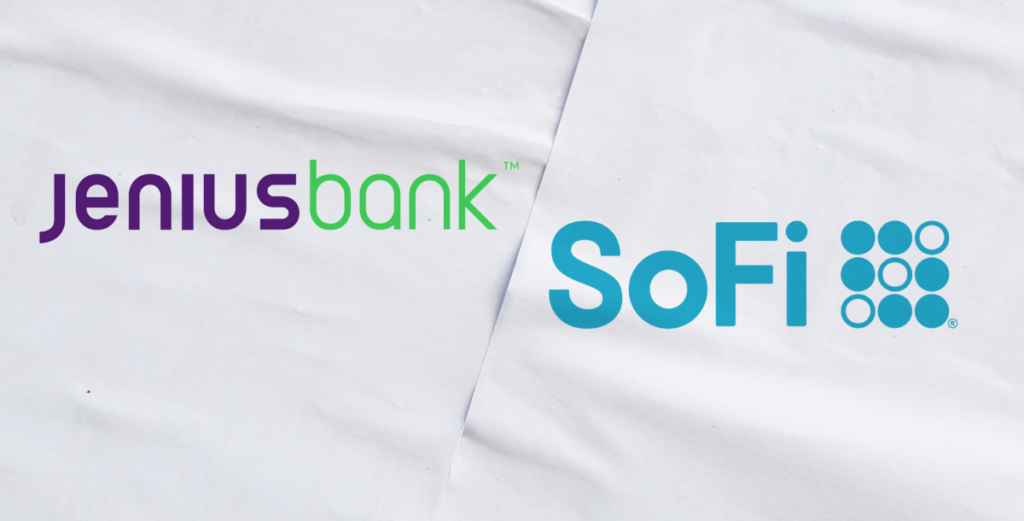Online banking has transformed the financial landscape by offering customers unparalleled convenience, competitive interest rates, and lower fees compared to traditional brick-and-mortar banks. If you’re contemplating a switch to online banking, Jenius Bank and SoFi are two notable institutions to consider. Both banks have become prominent figures in the online banking sector, particularly known for their high-yield savings accounts and minimal fee structures. This comparative analysis of Jenius Bank and SoFi will provide insights to aid in your decision-making process while weighing the pros and cons of each option.
Jenius Bank operates as the digital division of SMBC MANUBANK, a California state-chartered commercial bank located in Los Angeles. It specializes in personal loans and high-yield savings accounts. On the other hand, SoFi, or Social Finance Inc., has established itself as an influential online financial company since its inception in 2011. Originally launched to facilitate student loan refinancing, SoFi has broadened its product spectrum to incorporate a wide range of financial services, including lending, investing, personal banking, and insurance solutions, now serving over 6.9 million customers. This diversity highlights the different journeys and service offerings of the two banks.
When it comes to checking accounts, SoFi takes the lead as Jenius Bank currently does not provide this service. SoFi offers a competitive checking account with a 0.50% annual percentage yield (APY), significantly higher than the national average for interest-bearing checking accounts. Featuring no minimum deposit requirement or monthly maintenance fees, this account stands out in the market. Additionally, SoFi is promoting a new customer bonus of up to $300 for those who open a checking and savings account that earns interest and set up direct deposits. This feature enhances SoFi’s position as a comprehensive banking solution for individuals looking for a blend of checking and savings functionality.
Both Jenius Bank and SoFi present attractive high-yield savings accounts, yet Jenius Bank provides a notable edge with a 4.80% APY in contrast to SoFi’s 4.20% APY. While SoFi boasts a lucrative sign-up bonus and ranks high among providers of online savings accounts general, Jenius Bank’s superior APY makes it a compelling choice for savers. Both banks maintain an appealing model of no minimum balance requirements and no monthly fees associated with their accounts, making them accessible to a broad audience. This lack of fees ensures customers can maximize their savings and focus on growing their finances without additional burdens.
In terms of personal loans, Jenius Bank offers loans ranging from $5,000 to $50,000, catering to individuals who may require financial assistance for various purposes. In contrast, SoFi provides an extensive array of products. Whether it’s home, auto, personal, or student loans, or further offerings such as investment products and credit cards, SoFi stands out as particularly versatile for customers seeking a wide range of banking and financial solutions. The more diverse service portfolio of SoFi makes it a better fit for individuals desiring comprehensive financial services in one location, emphasizing its appeal to a broader customer demographic.
In summary, the choice between Jenius Bank and SoFi will largely depend on your specific banking needs and preferences. Jenius Bank is ideal for those who prioritize high-yield savings with impressive APYs and who do not require checking services. On the other hand, SoFi excels with its various financial products, offering an interest-bearing checking account alongside extensive lending options. While both institutions share similar fee structures, customers with diverse banking needs may find SoFi’s extensive product offerings more advantageous, while those who seek to maximize their savings potential might favor Jenius Bank’s high APY. Careful consideration of what features and services resonate most with your financial goals will ultimately guide your decision between these two online banking options.

